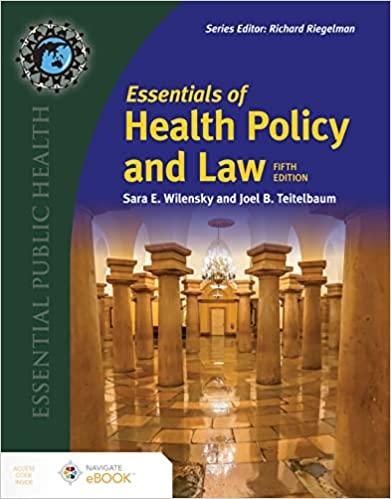At the turn of the 20th century, an Indiana physician named George Eddingfield repeatedly refused to come
Question:
At the turn of the 20th century, an Indiana physician named George Eddingfield repeatedly refused to come to the aid of Charlotte Burk, who was in labor, even though he was Mrs.
Burk’s family physician. Doctor Eddingfield conceded at trial that he made this decision for no particular reason and despite the facts that he had been offered monetary compensation in advance of his performing any medical services and that he was aware that no other physician was available to provide care to Mrs. Burk. Unattended by any medical providers, Mrs. Burk eventually fell gravely ill, and both she and her unborn child died.
It was determined upon trial and subsequent appeals that Dr.
Eddingfield did not wrongfully cause either death.
Around the same time as the scenario just described, the Cambridge, Massachusetts, Board of Health ordered everyone within city limits to be vaccinated against the smallpox disease under a state law granting local boards of health the power, under certain circumstances, to require the vaccination of individuals.
After refusing to abide by the Cambridge Board’s order, Henning Jacobson was convicted by a state trial court and sentenced to pay a $5 fine. Remarkably, Mr. Jacobson’s case not only made its way to the U.S. Supreme Court, but it also resulted in one of the court’s most important public health rulings and a sweeping statement about limitations to fundamental individual rights in the face of threats to the public’s health.
Step by Step Answer:

Essentials Of Health Policy And Law
ISBN: 9781284247459
5th Edition
Authors: Sara E. Wilensky, Joel B. Teitelbaum





